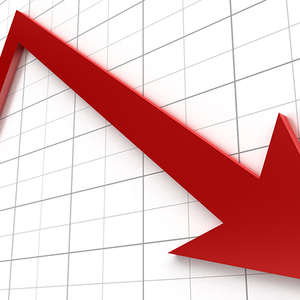Vacation Real Estate News

Short Term Rental Occupancies Plunge Mid-2025 as U.S. Travelers Pull Back
Vacation News » Lake Tahoe Edition | By David Barley | August 22, 2025 8:07 AM ET
Occupancy at U.S. short-term rentals is plunging heading into late summer, underscoring a tougher operating environment for Airbnb hosts and property managers facing cautious consumers.
Nationwide occupancy for August is tracking 10% below 2024 levels, according to the latest Short-Term Rental Index from PriceLabs. September 2025 is pacing even weaker, down 12% year-over-year, following a 12% drop in July. Only four states managed occupancy gains in July--Illinois (+1.7%), Arkansas (+1.1%), Missouri (+0.9%), and West Virginia (+0.1%).
Despite softer demand, operators are holding some pricing power. Average daily rates (ADRs) climbed 2.9% in July and are on track to rise about 3% in both August and September, suggesting travelers who do book are still willing to pay up for desirable properties.
Labor Day Provides Relief
One bright spot is Labor Day weekend, when demand is accelerating in many destinations. Eighteen of 24 tracked markets are seeing more nights booked than a year ago, led by Branson, Mo. (+39%), Atlanta (+37%), Ocean City, Md. (+34%), South Lake Tahoe, Calif. (+32%), and Destin, Fla. (+32%).
Occupancy rates remain uneven. Bend, Ore., leads the holiday weekend with 60% occupancy, followed by Chicago (58%), Seattle (53%), Atlanta (50%), and Asheville, N.C. (50%). At the other end, Naples, Fla.--weighed down by hurricane season--has just 7% of nights booked, while Las Vegas (23%) and Washington, D.C. (27%) also lag national averages.
Regional ADR trends are mixed. The Northeast is showing the strongest pricing resilience, while hosts in weaker markets are more likely to discount as last-minute booking patterns intensify.
"Economic uncertainty is making some travelers wait longer to decide whether to book, and the question remains whether those with a lower budget will travel at all," said Richie Khandelwal, president and co-founder of PriceLabs. He added that deal-seekers may find better rates by traveling mid-week, off-season, or in less-saturated markets.
Sign Up Free | The WPJ Weekly Newsletter
Relevant real estate news.
Actionable market intelligence.
Right to your inbox every week.
Real Estate Listings Showcase
Related News Stories
Vacation Real Estate Headlines
- Cuba's Tourism Could Boom if Trump Liberates Its People Like Venezuela
- Global Hotel Performance Remained Stagnant in 2025
- Record-Breaking 122 Million Americans Will Travel This 2025 Holiday Season
- Record 81.8 Million Americans to Travel for Thanksgiving
- Hong Kong Hotel Investment Skyrockets 106 Percent in 2025
- Asia-Pacific Hotels See Modest Profits Ahead While Navigating Global Volatility
- Asia Pacific Hotel Investment Slows Amid Selective Capital Flows
- Asia Pacific Hotel Investment Cools in First Half of 2025
- Short Term Rental Occupancies Plunge Mid-2025 as U.S. Travelers Pull Back
- Short-term Vacation Rentals Outperform U.S. Hotels in Q2
- Record Setting 72.2 Million Americans Traveling for July Fourth Holiday
- Record 45.1 Million Americans to Travel Over 2025 Memorial Day Weekend
- U.S. Vacation Home Sales Fall to Lowest Level Since 2018
- Disney Announces New Landmark Theme Park Resort in Abu Dhabi
- Despite Geopolitical Uncertainty, European Hotel Values Rise
- Record 119 Million Americans Traveling Over the Christmas Holidays
- 80 Million Americans to Hit the Road, Skies and Seas for 2024 Thanksgiving Holiday
- Asia Pacific Hotel Investment to Exceed $12 Billion in 2024
- Asia Pacific Hotel Investment Tops $12 Billion in 2024
- Seattle, Orlando and New York Top Labor Day Destinations in 2024
- Record 71 Million Americans Traveling Over July Fourth Week
- Major Hotel Operators Expanding Rapidly Across Asia Pacific in 2024
- 44 Million Traveling Memorial Day Weekend, Second Most in History
- South Korea is Asia Pacific's Top Performing Hotel Market
- Florida Dominates Top 10 U.S. Cities List to Invest in Short Term Rentals
- Investment in South Korea Hotels Dipped in 2023
- European Hotel Values Still Below Pre-Covid Prices
- Over 115 Million Americans Traveling Over Christmas Holidays
- 55.4 Million Americans on the Move Thanksgiving Holiday
- Asia Pacific Tourism to Approach Full Recovery in 2024, Driving Hotel Sector Growth
- Asia Pacific Hotel Revenues to Rise in 2024 Despite Economic Volatility
- Tourist Bookings to Hawaii Down 50 Percent Since Maui Wildfires
- Demand for Vacation Homes in U.S. Hit 7-Year Low in August
- International Travel for Americans Jumps Over 200 Percent in 2023
- U.S. Labor Day Weekend Travel To Uptick in 2023
- Asia Pacific Hotel Investment Collapses 51 Percent in 2023
- As Summer Travel Season Winds Down, U.S. Gas Prices Rise Again
- Record Setting 50.7 Million Americans to Travel This July Fourth Holiday
- Israel Hotels Poised for Growth as International Visitors Set to Return
- Over 42 Million Americans to Travel This Memorial Holiday Weekend







